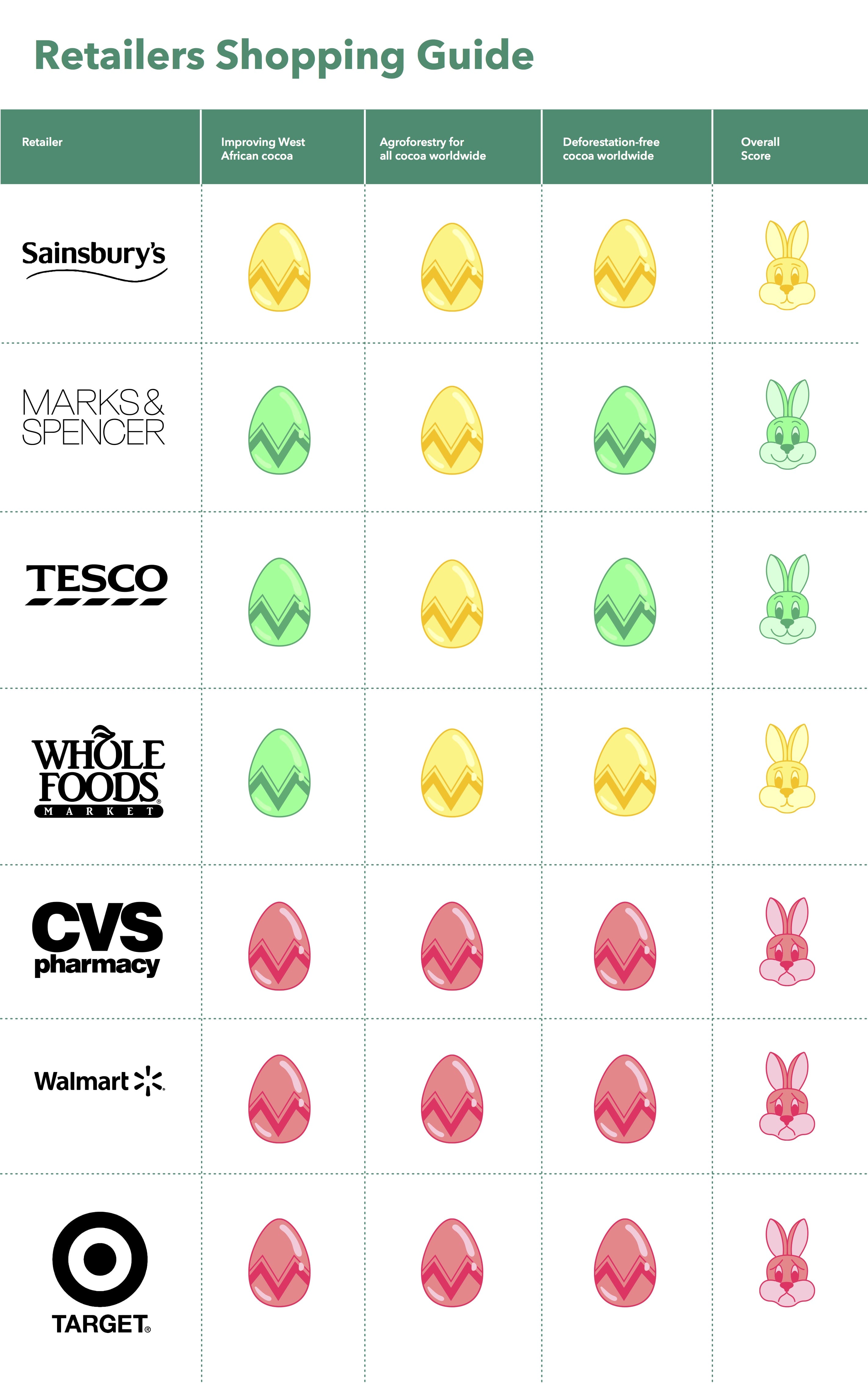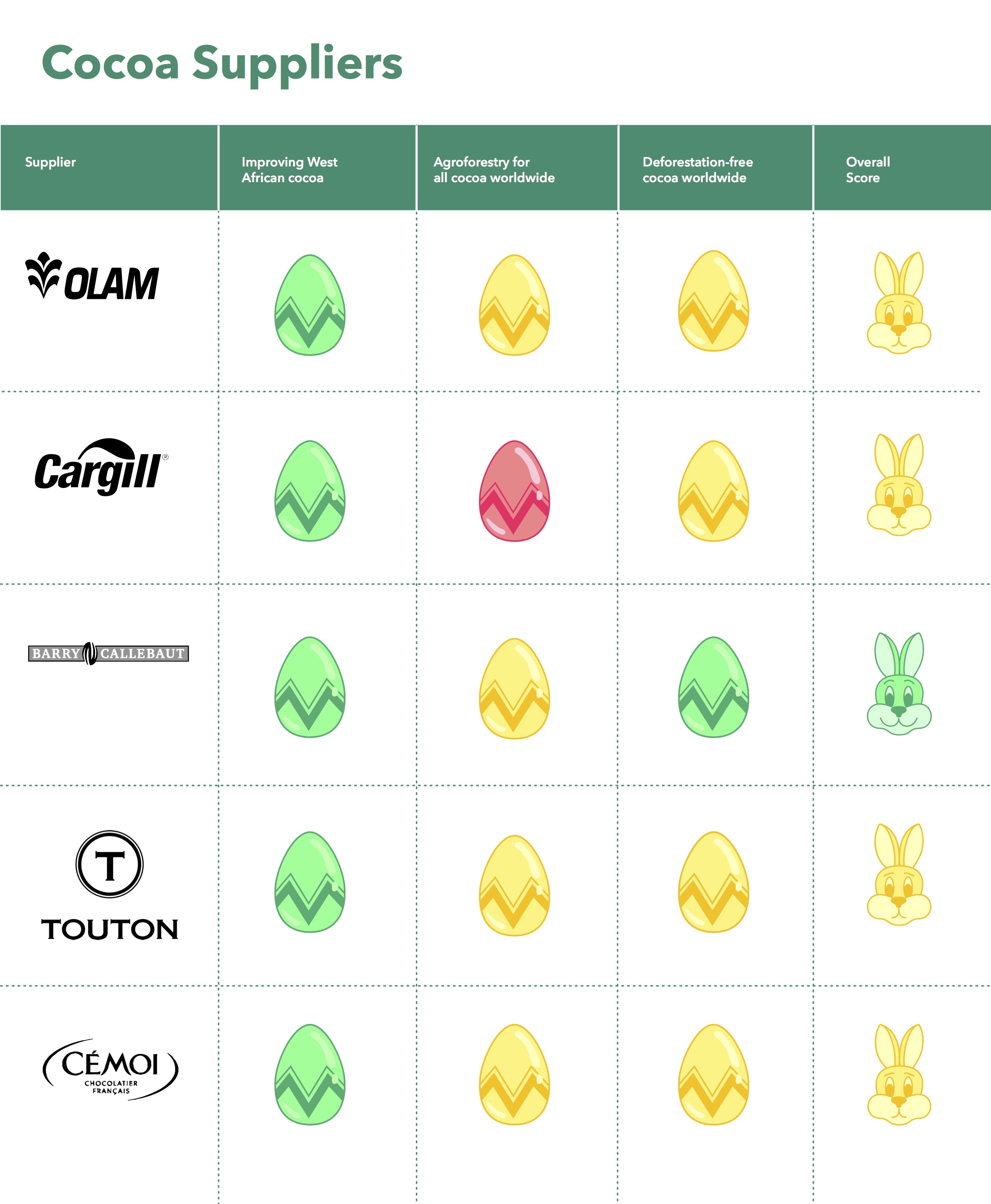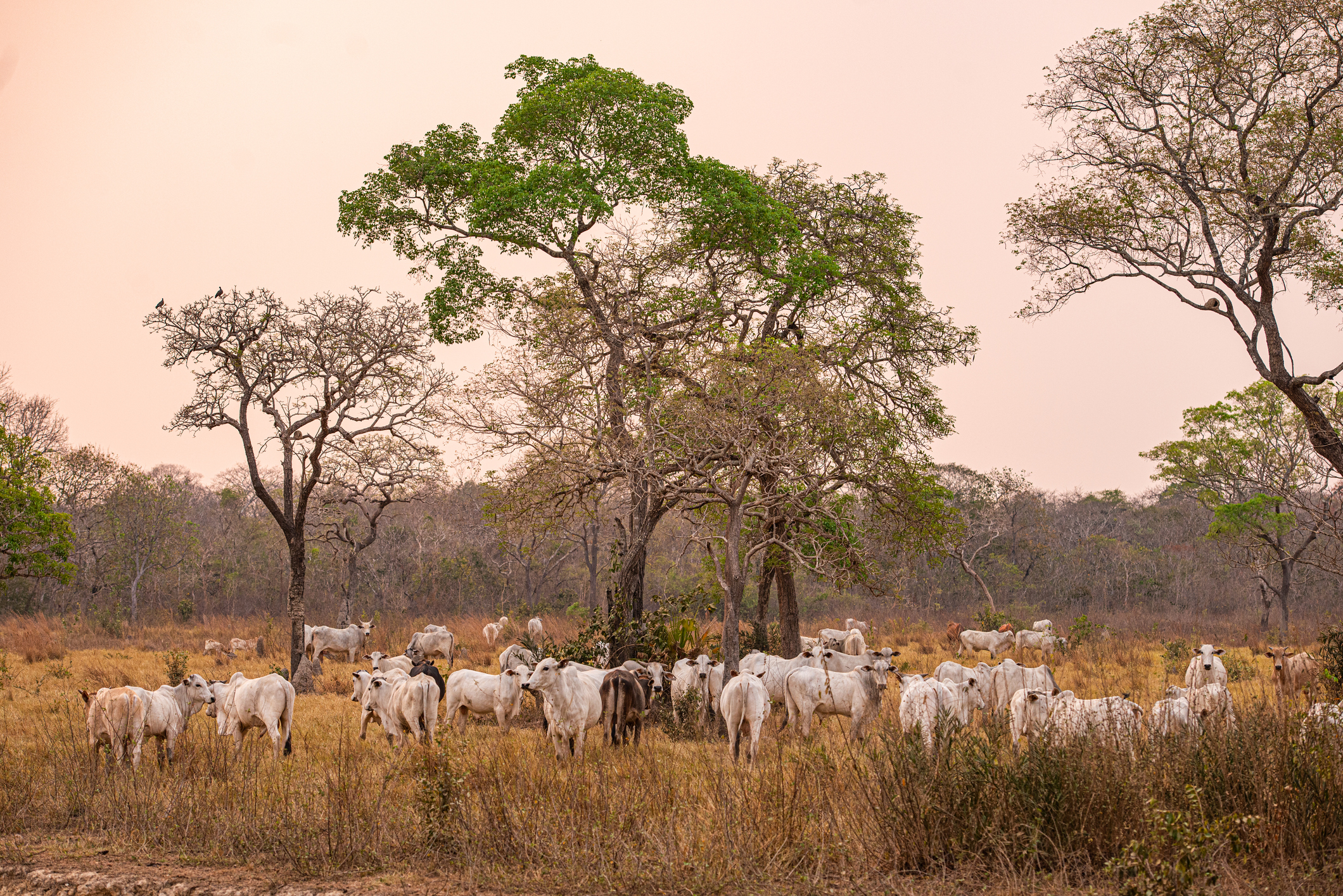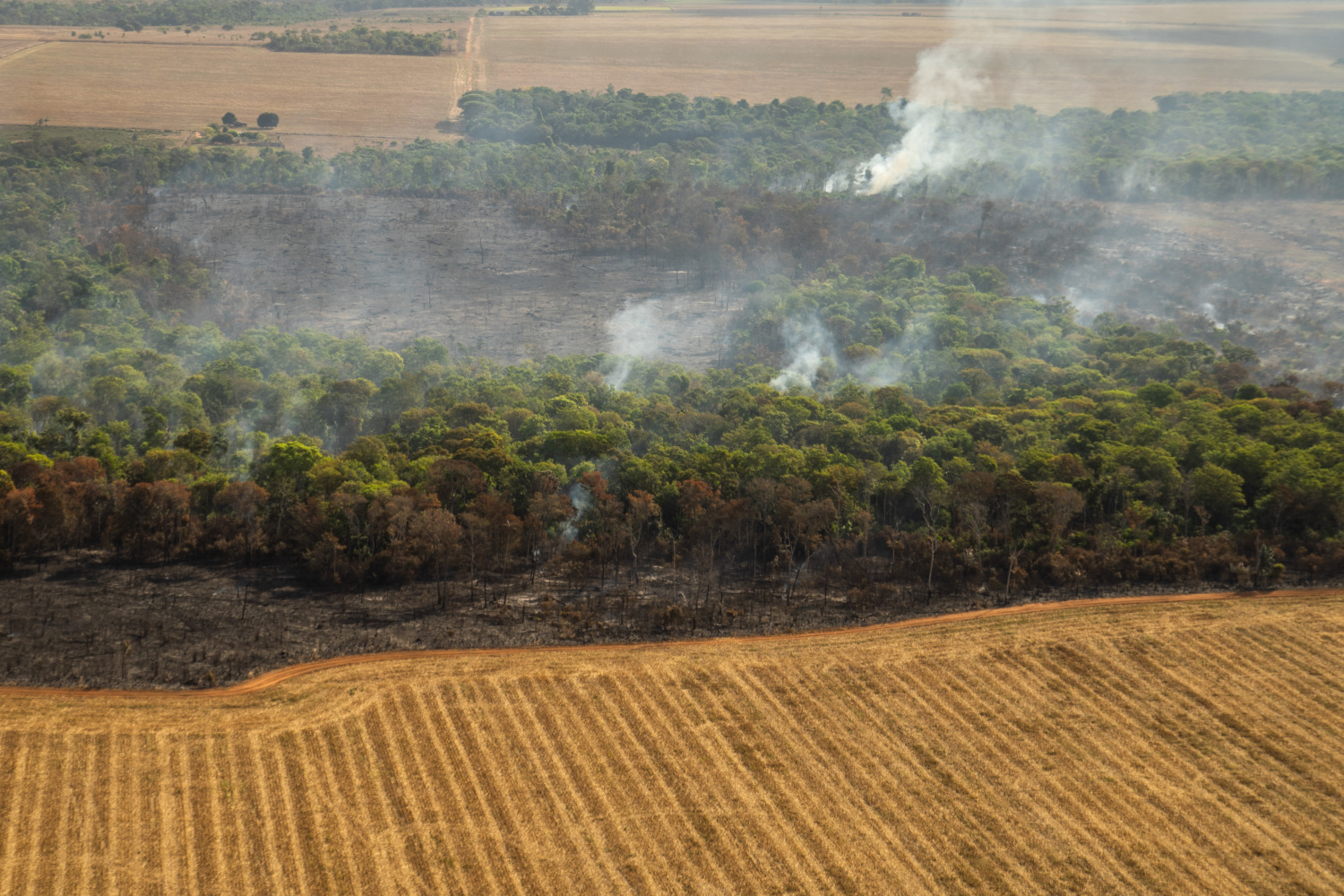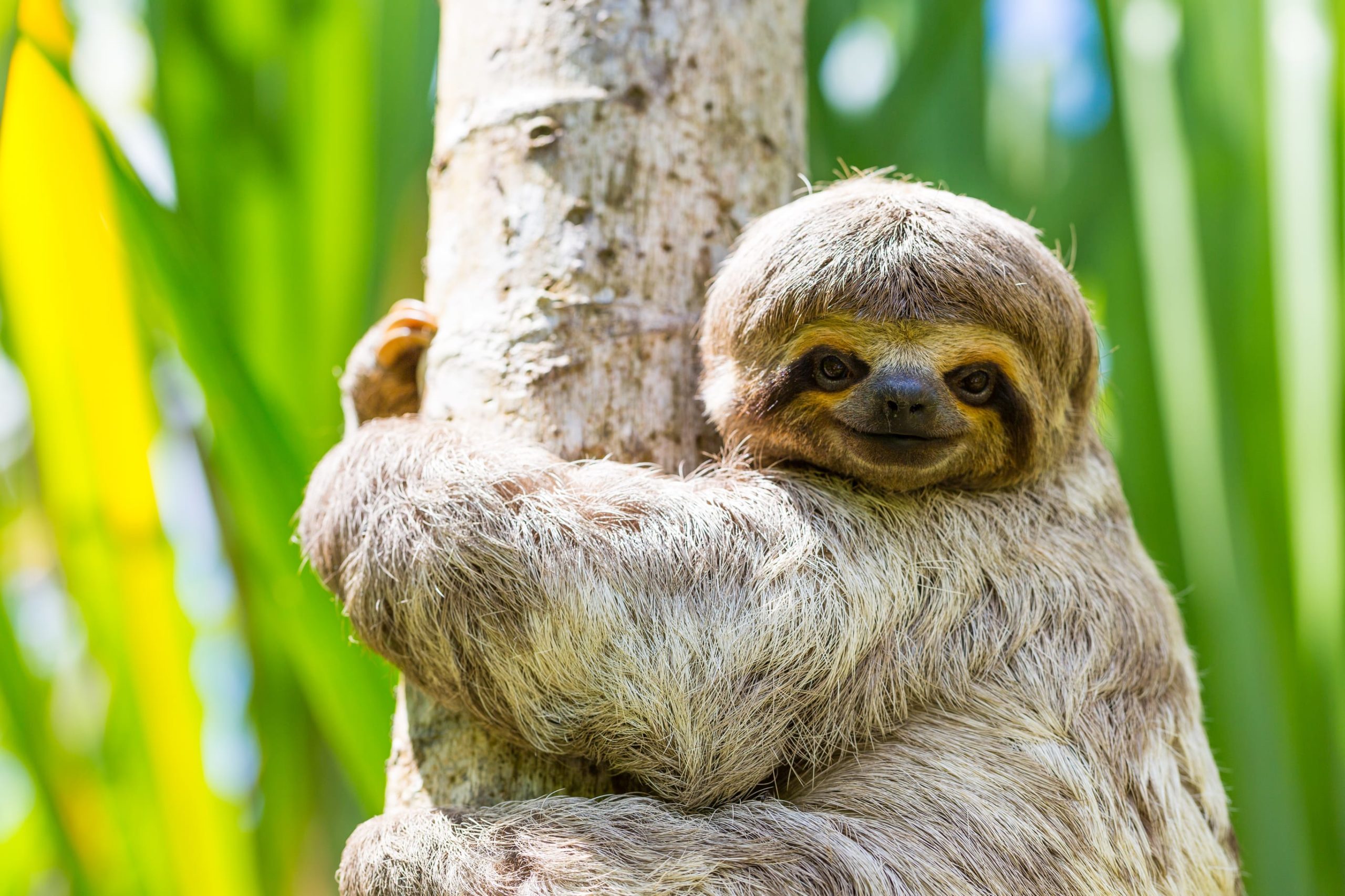
How to Buy Chocolate for Easter Without Killing Sloths
How to Buy Chocolate for Easter Without Killing Sloths

It’s Easter. The holiday season is chock-full of scenes of celebration: bunnies, decorations, and eggs. And chocolate. Lots of chocolate. The week surrounding Easter has the highest consumption of chocolate in the year.
This sweet season obscures a bitter truth: the primary areas where cocoa is grown—Ivory Coast, Ghana, Cameroon, Indonesia, Peru and Ecuador—have experienced a dramatic decline in forest cover and biodiversity as a result of cocoa cultivation. For example, when I interviewed Ivorian poachers during an undercover investigation to film illegal cocoa inside parks, they told me the national parks were so decimated that there were no animals left to hunt. ‘Nothing is left,’ said one poacher who requested anonymity.
Though the industry has long been known for child labor, slavery, trafficking, and other labor abuses, Mighty Earth first uncovered cocoa’s deforestation challenge last spring, when trying to assess causes of forest loss in West Africa. The findings from satellite maps surprised us: Cocoa turned out to be the top driver of deforestation in the Ivory Coast and Ghana. These nations rank #1 and #3 for the highest rates of deforestation in all of Africa. The Ivory Coast lost more than 85 percent of its forests since 1990 alone. After learning of this problem, we went to the field, documented how illegal deforestation cocoa was finding its way into Easter eggs, Kit Kats, and Snickers and alerted local governments and 50 major chocolate companies.
Following the report and hard work behind the scenes by IDH, the Prince of Wales International Sustainability Unit, and the World Cocoa Foundation, most major players in the chocolate sector joined the Ghanaian and Ivorian governments to commit to No New Deforestation for cocoa in West Africa.
This commitment by industry and West African offers the basis for addressing these issues, but now the real work must begin: companies must quickly set up systems to fully monitor forests, exclude suppliers that engage in destruction of forests, and invest in restoration of national parks and protected areas.
One major step that would make Easter beautiful would be a plan to shift the world’s 9 million hectares of cocoa to more sustainable, shade-grown cocoa that can provide habitat for birds and other animals, instead of just monocultures.
Second, the cocoa industry needs to clean up its act for chocolate worldwide, not just in West Africa. The pledges made to reform in West Africa only cover two countries. What will happen to chimps in Cameroon, dwarf buffalos in Indonesia, or sloths in Peru also facing threats from cocoa expansion? While progress in Ivorian and Ghanaian cocoa has been remarkable, chocolate companies should protect the rest of the world as well.
It’s up to us to hold the industry accountable this holiday season. Hundreds of thousands of consumers have already acted by signing petitions, and chocolate lovers can help shift the industry by buying holiday chocolate with deforestation in mind. We made a purchasing guide to help consumers understand which major chocolate companies are doing the best job so far to protect forests, and which are lagging behind. We give companies “good” green eggs for leadership, yellow eggs if the company needs to step up their game, and red or “bad eggs” for companies failing to do the right thing. Each company is scored based on three simple criteria: first, have they signed onto the West African pact to overhaul all environmental practices for cocoa there, and turn the page on deforestation? Second, are they on board with “shade-grown” bird-friendly cocoa with a real agroforestry policy worldwide? And third, has the company extended its commitment beyond West Africa to protect forests all over the world, refusing to buy deforestation cocoa no matter where it’s from?
We urge you to buy with your heart this Easter, and make sure you purchase chocolate only from companies that do their part to protect forests and wildlife.

